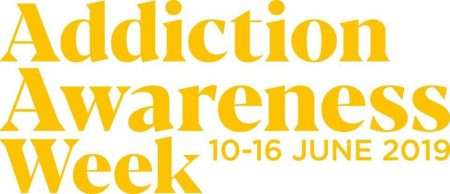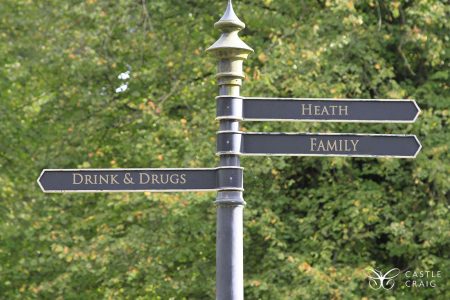Mixing meth and alcohol is a dangerous and potentially life-threatening activity. While methamphetamine (a highly addictive substance) is a stimulant that speeds up the central nervous system, alcohol is a depressant that slows it down. Combining meth with alcohol disrupts brain chemistry and increases the risk of harmful effects, including overdose, cognitive impairment, and even sudden death.1
What Happens When You Mix Meth and Alcohol?
Many meth users also engage in binge drinking or regular alcohol consumption. Mixing alcohol with meth leads to unpredictable drug interactions. These substances affect the neurotransmitter systems in opposing ways, potentially resulting in severe health effects.2,3
As meth suppresses the depressant effects of alcohol, people often underestimate how intoxicated they are. This may lead to higher doses of alcohol being consumed, increasing the likelihood of alcohol poisoning. At the same time, alcohol may dull the stimulating effects of meth, leading to heavier meth use. This combination poses a greater risk for accidents, fatal overdoses, and long-term meth addiction and alcohol dependence.4
Find Out More
Learn more about the signs and symptoms of methamphetamine addiction.
Effects of Meth and Alcohol on the Brain and Body
The acute effects of mixing alcohol and meth include:
Increased heart rate and blood pressure
Verbal learning and memory disruption
Poor coordination and impaired judgment
Reduced appetite and dehydration
Risky behaviours such as unsafe sex or driving under the influence
These effects are amplified in individuals with a history of alcohol use disorder, amphetamine dependence, or those using more than one drug at a time.
Health Effects and Long-Term Damage of Alcohol and Meth
Meth and alcohol use together puts excessive stress on major organs. The stimulant-depressant combination can cause 5:
Liver damage and kidney damage
Stroke, heart failure, or heart attack
Greater risk of alcohol addiction or meth abuse
Increased risk of psychiatric complications, such as anxiety, depression, or psychosis
Chronic substance abuse patterns involving multiple substances
Cardiovascular problems such as heart failure
Long-term users may face significant cognitive impairment, including problems with verbal learning, attention, and executive function.
Risk of Overdose and Death When Mixing Alcohol and Crystal Meth
Combining meth and alcohol increases the risk of fatal overdoses. The opposing nature of the substances masks the warning signs of overdose, increasing the risk of sudden death.
Signs of a possible overdose include 6:
Irregular or slowed breathing
Pale or blue-tinged skin
Seizures
Vomiting
Loss of consciousness
Alcohol withdrawal symptoms may also complicate recovery, especially if meth metabolism has been altered through prolonged use. These withdrawal symptoms can be dangerous without proper support.
Understanding Addiction to Alcohol and Meth
Using alcohol and meth together often leads to drug dependence or alcohol dependence. Substance use involving other drugs increases the body’s tolerance and makes withdrawal more intense. Over time, patterns of stimulant use disorders and substance abuse become deeply ingrained.
Alcohol addiction and meth addiction often co-occur, requiring comprehensive treatment that addresses both substance use and underlying mental health conditions.
Are You Ready To Find Out More About Rehab?
Find out more about rehab treatment at Castle Craig.
Rehab Treatment for Alcohol and Methamphetamine
If you’re using both meth and alcohol or other substances together, it’s important to know there are effective treatment options. Castle Craig offers inpatient treatment for both methamphetamine addiction and alcohol addiction.
Treatment begins with medical detox (if required), ensuring safe withdrawal from both alcohol and meth. Once stable, patients take part in:
- Individual and group therapy
- Trauma therapy, including EMDR
- Dual diagnosis care for co-occurring mental health issues
- CBT, DBT, and 12 Step facilitation
Patients may benefit from a structured, compassionate environment with a focus on long-term recovery.
Castle Craig is recognised as a trusted treatment centre with over 35 years of experience helping people recover from substance use disorders.
Self-Help Resources
If you are interested in finding out about addiction resources in your area, try Alcoholics Anonymous (AA) or Narcotics Anonymous (NA). You will find a range of meetings in your area to find support and meet like-minded community members treading their own path of recovery.
Contact Us
If you or a loved are looking to begin treatment for addiction, contact a member of our team today.
Frequently Asked Questions
-
What happens when you mix meth and alcohol?
Mixing meth and alcohol can mask the effects of both substances, leading to heavier use, risky behaviours, and greater health risks, including overdose and heart problems.
-
Is it more dangerous to mix meth with alcohol than to use them separately?
Whilst misusing methamphetamine or alcohol can cause a serious reaction in the body as individual disorders, combining the two increases the strain on your central nervous system and heart, raising the risk of serious adverse effects and potential fatal outcomes.
-
Can you overdose from meth and alcohol together?
Yes. This combination increases the chance of overdose due to suppressed warning signs and increased substance intake.
-
What are the signs someone has overdosed on meth and alcohol?
Warning signs include seizures, unconsciousness, slowed breathing, pale skin, vomiting, and confusion. This is a medical emergency and it is important to seek help immediately.
-
How is treatment different if you have used both meth and alcohol?
Using both together and facing addiction to both, creates complex challenges when it comes to recovery. This requires integrated treatment that deals with the symptoms of both methamphetamine addiction, and alcohol addiction. At Castle Craig, inpatient programmes provide detox, group counselling, mental health support, and evidence-based therapy for alcohol and drug dependence.
-
References
- Stafford AM, Pitman RK, Stafford MW, et al. Combined and sequential effects of alcohol and methamphetamine: a review. Addict Behav. 2021;119:106898. PMCID:8642292.
- Singh AK, Dhawan A, Kalra S, Kumar V. Alcohol interaction with cocaine, methamphetamine and other stimulants: a mechanistic review. Biomedicines. 2019;7(1):16.
- Bujarski S, Roche DJO, Cooney NL, et al. The relationship between methamphetamine and alcohol use: effects of co‑use on intoxication and neurobiology. Front Psychiatry. 2014;5:131.
- Kline HL, et al. The effects of alcohol drinking on subsequent methamphetamine dependence. Psychopharmacology. 2022;239:1459‑68.
- Curran L, McCartney A, Gately R, et al. Clinical Correlates and Outcomes of Methamphetamine Use and Cardiovascular Disease. J Am Heart Assoc. 2022;11:e023663.
- Dickson SD, et al. Methamphetamine‑Associated Heart Failure in US Hospitalizations. J Am Heart Assoc. 2021;10:e018370.



